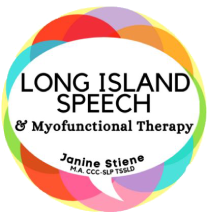Blog
Acid Reflux
Reflux is very common in both adults and children and can lead to serious health issues. Reflux can cause swallowing issues, voice issues, and lead to unpleasant mealtimes. Therefore it is important to be aware of: what it is, how to prevent it and how to treat it!
What is Reflux?
Reflux occurs when contents of the stomach flow back up the esophagus to the level of the throat and/or mouth. Stomach acid is normally kept in the stomach by a muscular valve called the lower esophageal sphincter (LES). If any type of malfunction occurs with the LES, reflux will occur. The stomach acid can impair the throat and possibly cause permanent damage. Reflux can occur at any age, however it is more common in older individuals.
There is no known, single cause of reflux however factors that may contribute to it are:
- Being overweight
- Consuming reflux inducing foods
- Smoking/alcohol consumption
- Pregnancy
The main symptoms of reflux include:
- Heart burn
- Chest pain
- Bitter taste in mouth
- Sore throat
- Nausea
- Excess saliva
- Regurgitation
- Hoarseness
- Difficulty Swallowing (Dysphagia)
Treatment of Reflux
A treatment of reflux involves a combination of lifestyle changes, as well as prescription medication. In order to decrease reflux episodes certain foods can be avoided. These foods include:
- Alcohol
- Citrus fruits/juices
- Tomatoes/tomato based products
- Caffeine
- Chocolate
- Fried foods
- Carbonated beverages
- Garlic
- Onions
- Spicy foods
In addition to avoiding these foods there are other lifestyle changes that can be made, including:
- Eating smaller meals
- Avoiding eating close to bed time
- Eating smaller bites
- Limiting alcohol and smoking intake
- Weight loss
If reflux continues to occur, there are medications that may be used. For more serious cases of dysphagia secondary to reflux, surgical procedures may be performed.
What if it goes untreated?
If left untreated reflux can lead to more serious disorders such as: esophagitis (inflammation and irritation of the esophagus), esophageal cancer, and dysphagia. Dysphagia is any difficulty experienced with accepting, manipulating, and/or transporting food or liquid from the mouth to the stomach. Many things may cause dysphagia, one of the most common being Gastroesophageal reflux disease (GERD).
Hope this is helpful!
-Katelyn




